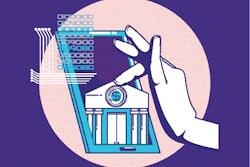
Quarantines and lockdowns throughout the world have put a hold on both the global and national economies, causing companies to brace for the recession that experts say may follow.
In fact, some predict the COVID-19 crisis will institute a recession on par with the likes of 2009 or worse. But, how FinTech platforms will fair in this is unknown.
“Given the current COVID-19 crisis, we’re on the cusp of a major financial recession, which means we can expect two larger financial trends in the near future,” says Edrizio De La Cruz, co-founder and CEO of Arcus Financial Intelligence Inc., New York. “During recessions, there is usually a major move toward consolidating high-interest debts. This could be a major issue for any buyers who have outstanding balances with suppliers. However, there have been advancements in FinTech that enable easier debt consolidation, which can help here.”
Specific to supply chains, FinTech is used as a way for manufacturing and logistics companies and their partners to better manage financial operations, allowing buyers to complete payments faster and suppliers to receive funds faster.
Most FinTech platforms are accessed through a cloud management system, where businesses simply download an application or access an online site to manage their payment accounts. Previously, it could be as long as three months for a supplier to receive payment on an order, whereas FinTech streamlines this timeline immediately. Now, suppliers have more control on payment deadlines, allowing them to enact a longer period of time for a deadline or finance heavy equipment themselves.
FinTech firms also work across banks to determine the most beneficial payment option for each company. This, coupled with their much lower rates, have disrupted the way supply chains operate financially.
Those who will benefit most from tapping into FinTech solutions are startups, whose credit profiles are less sturdy and not as successful when working with banks. Suppliers and manufacturers whose processes have longer lead times can also benefit.
“A startup in any industry will be most adaptable to FinTech because their riskier credit profile is a good fit for FinTechs, which can use alternate means to determine credit worthiness, instead of the more traditional approaches that a big bank requires,” says Shawn DeVries, managing director of B2B at Kin + Carta. “Industries with long lead times will benefit from the financing options that FinTechs can provide.”
New Technologies Push FinTech Forward
One out of four companies are currently using some form of FinTech in their supply chains, according to a report from CGN Global.
From here on out, the industry is likely to see FinTech platforms take away processes that have previously only been handled by big banks, or banks will partner with the technology providers themselves. Some banks may adopt FinTech solutions into their own platforms.
“FinTech will continue to take processes that a big bank traditionally handles and accelerate it, which makes FinTech very appealing to suppliers and buyers seeking funding,” adds DeVries.
“Not to be outdone by FinTechs, big banks are taking a hard look at partnering with FinTech firms, and even modernizing the digital experiences they offer for supply chain finance, such as re-imagined treasury systems. These changes are enormous projects for banks though, and take a long time to make it into the hands of CFOs.”
FinTech is also more accessible for supply chains, as software-as-a-service (SaaS) has paved the way for software companies to build better solutions.
“Fintech has never been more accessible. Now any business can feasibly become a fintech business with the right technology partner,” says De La Cruz. “ The introduction of Software-as-a-Service (SaaS) fundamentally changed the way software companies are built, making it easier and faster than ever to build and launch a software company. The same is now happening in the fintech space which could mean major changes for how buyers and suppliers approach their own financial needs and requirements.”
Some companies have even created their own FinTech solutions and offshoot companies to better handle finances and payouts.
Uber Money, for example, allows drivers and couriers to have access to immediate funds after every trip instead of waiting for a weekly paycheck. The platform also offers a variety of services such as debit accounts, a digital wallet and a relaunch of Uber credit card.
Braintree, a division of PayPal, helps online businesses manage financial security. And, Carta, Palo Alto, Calif., is a platform that allows companies to manage and track equity, administer portfolios and back office processes and track regulations.
The list goes on and on, and the ways supply chains are implementing FinTech are endless.
“The always present tension over buyer/supplier payment terms is another area where FinTech can make an impact,” continues De La Cruz. “Certain FinTechs have created more appealing financing options for suppliers. They work with companies and banks to provide suppliers with options to stay financially sound while also allowing companies to realize the cash opportunity present in their supply chains.”
The healthcare supply chain is one sector in particular that could benefit dramatically from the use of FinTech, allowing consumers to use these options to better manage medical debt. More importantly, healthcare providers will see advantages from modernizing procurement and protect against fraud.
In using FinTech, these companies are also introduced to significant amount of data that was unavailable prior.
“For actors within the supply chain, data is invaluable,” says De La Cruz. “Access to the right data can result in huge savings. Fintechs understand the value of data more than most and provide access to enhanced financial data and insights that can help optimize supply chain finances.”
Financial and Technological Security
While there are numerous cost-saving and time-efficient benefits to tapping into FinTech solutions, there are also some risks related to falling for FinTech.
Regulations differ from country to country, so companies need to pay attention to local rules wherever they operate.
Security issues are highly important as well, meaning FinTech solutions need to be heavily guarded in terms of technological security to prevent hackers and attacks.
As the supply chains continue to navigate the COVID-19 outbreak, these platforms will become more and more important.
Following the pandemic and the sure-to-follow recession, FinTech themes will pivot toward more personal financial operations, as consumers scramble to manage their finances. Debt consolidation and alternative forms of finding money will become a priority for financial institutions in meeting consumer needs, in addition to suppliers and buyers.
FinTech will continue to grow in assisting the supply chain with financial services, but it is important for those who develop the solutions to ensure the highest of security.
Partners should do their due diligence in ensuring that their own partners are safe, while also looking to the future of payment and financial management.














